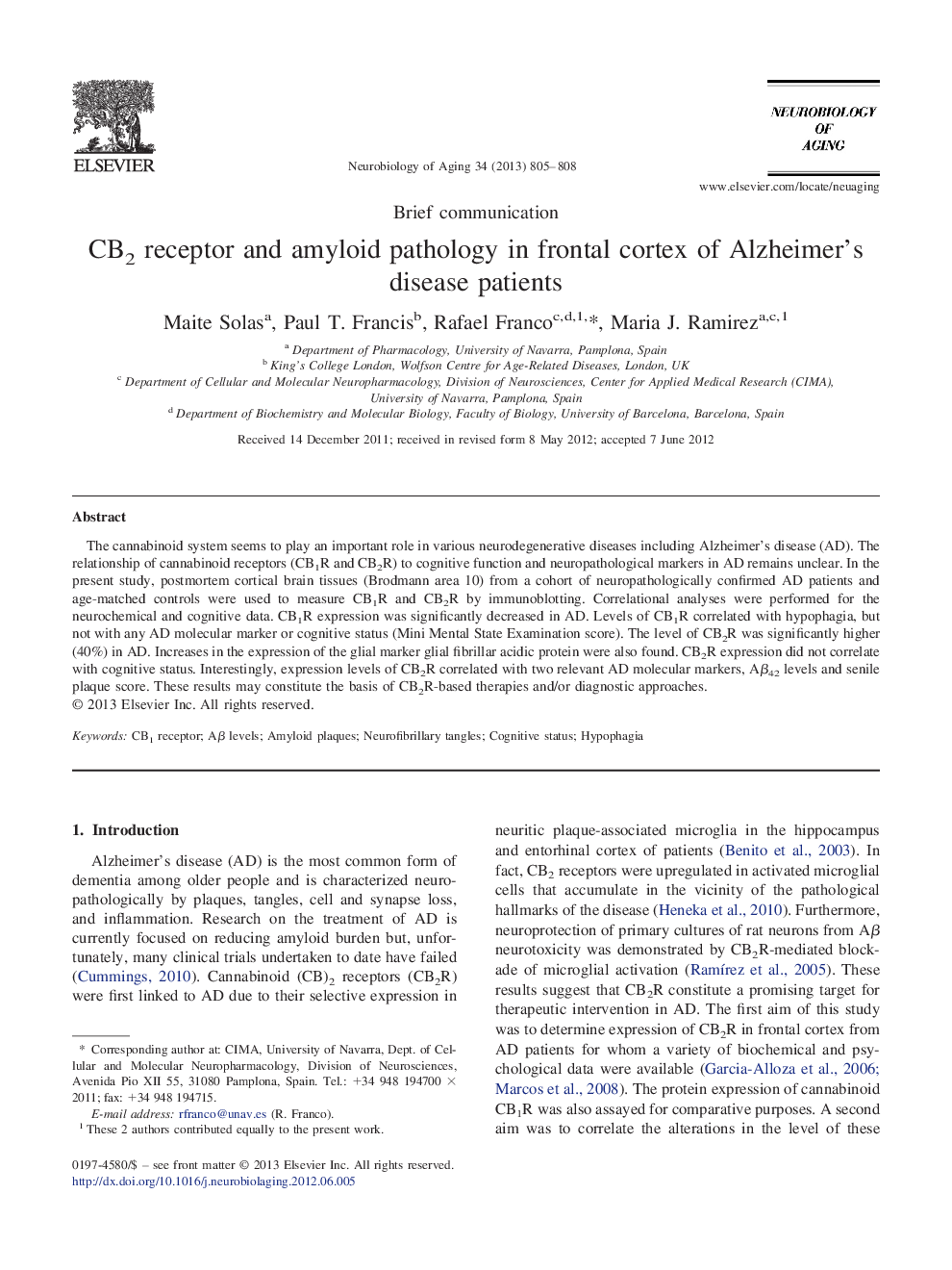| Article ID | Journal | Published Year | Pages | File Type |
|---|---|---|---|---|
| 6807827 | Neurobiology of Aging | 2013 | 4 Pages |
Abstract
The cannabinoid system seems to play an important role in various neurodegenerative diseases including Alzheimer's disease (AD). The relationship of cannabinoid receptors (CB1R and CB2R) to cognitive function and neuropathological markers in AD remains unclear. In the present study, postmortem cortical brain tissues (Brodmann area 10) from a cohort of neuropathologically confirmed AD patients and age-matched controls were used to measure CB1R and CB2R by immunoblotting. Correlational analyses were performed for the neurochemical and cognitive data. CB1R expression was significantly decreased in AD. Levels of CB1R correlated with hypophagia, but not with any AD molecular marker or cognitive status (Mini Mental State Examination score). The level of CB2R was significantly higher (40%) in AD. Increases in the expression of the glial marker glial fibrillar acidic protein were also found. CB2R expression did not correlate with cognitive status. Interestingly, expression levels of CB2R correlated with two relevant AD molecular markers, Aβ42 levels and senile plaque score. These results may constitute the basis of CB2R-based therapies and/or diagnostic approaches.
Related Topics
Life Sciences
Biochemistry, Genetics and Molecular Biology
Ageing
Authors
Maite Solas, Paul T. Francis, Rafael Franco, Maria J. Ramirez,
